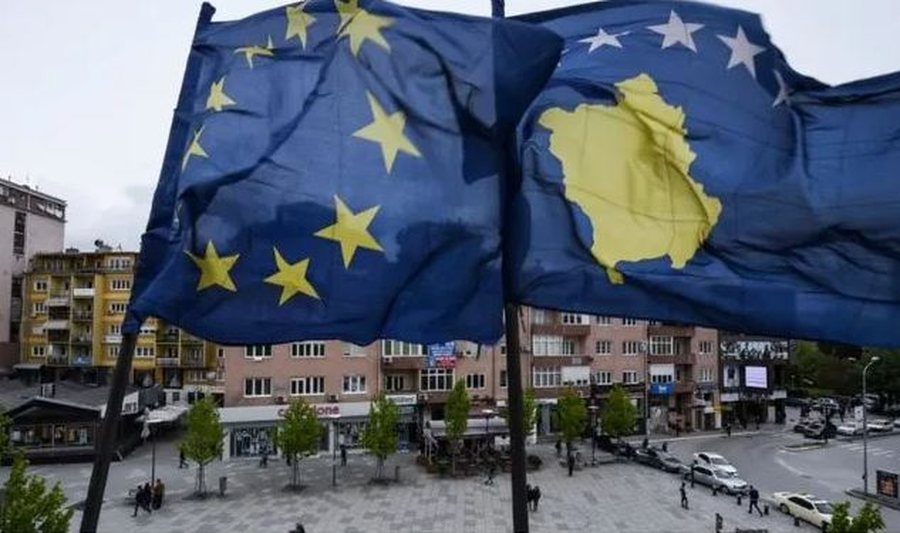
Since June 2023, Kosovo has been subject to several punitive measures by the European Union. Now, almost two years later, they are finally being gradually lifted - with much uncertainty. But the damage caused so far amounts to hundreds of millions of euros.
A report published today by the Institute for Advanced Studies - GAP, says that the measures have cost Kosovo around 615 million euros in suspended or indefinitely postponed projects, while 7.1 million euros have been lost after the allowed deadlines were exceeded.
"These delays in the start of project implementation mean postponement or loss of opportunities for growth, development and improvement of citizens' well-being, as well as negatively impacting the prospects for European integration," the GAP Institute said in a statement.
Why were the measures imposed and how are they being lifted?
The EU punished Kosovo in June 2023, due to what it assessed as the role of the Kosovo Government in fueling ethnic tensions in the north of the country - an area inhabited by a Serb majority.
Since then, Kosovo's political leaders have consistently called for the lifting of these measures, calling them unjust.
Last week, during her visit to Pristina, EU foreign policy chief Kaja Kallas said that the European bloc has begun to slowly lift measures against Kosovo, but on condition that it reduces tensions in the Serb-majority north of the country.
But even this news has brought uncertainty, as it is still not known which measures are being lifted exactly and in what timeframe.
Radio Free Europe/Radio Liberty learned from its sources in Brussels that the measures that have been lifted relate to the Stabilization and Association Agreement (SAA), the first contractual pact between Kosovo and the European bloc, and the Western Balkans Investment Framework (WBIF).
Meanwhile, Klisman Kadiu, from the Office of the Acting Deputy Prime Minister for European Integration, Development and Dialogue, Besnik Bislimi, said that "the EU will soon begin the functioning and holding of meetings of the SAA subcommittees with Kosovo."
What exactly did Kosovo lose from the measures?
The measures, according to the GAP Institute report, affected around 395 million euros of funds within the WBIF - which aims at the socio-economic development and European perspective of the Western Balkan countries - and around 218 million euros within the IPA program - a program that provides financial and technical assistance to countries aiming for the EU.
These funds were planned to be spent on the implementation of projects, which would be financed through grants and loans.
Although the 2024 IPA agreement had not been concluded and signed, the projects planned under it amounted to a total value of 56.4 million euros.
But, more than from the IPA program funds, Kosovo has lost in monetary value from measures that have affected projects under the Western Balkans Investment Framework (WBIF).
"Kosovo's applications under the Western Balkans Investment Framework (WBIF) submitted during 2023 and 2024 have not progressed for approval. As a result, several key projects, which were co-financed by the French Development Agency (AFD), the German Development Bank (KFW) and other international institutions, are not being implemented," the GAP Institute report states.
Suspended projects worth 395.5 million euros include, among others: the extension of the water supply and sewage network in Pristina, the water treatment plant in Ferizaj, the Kosovo-Albania energy interconnection line, and the construction of flood and irrigation infrastructure.
"The suspension of such investments has brought immediate and long-term consequences, such as delays in infrastructure construction, loss of employment opportunities, deterioration of living conditions, and obstacles to the fulfillment of environmental and integration objectives," the GAP Institute report states./ REL
(A2 Televizion)











